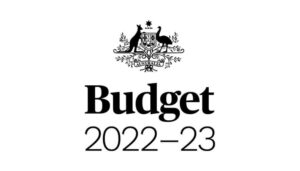
There are a number of new changes taking place from 1 July 2021. We have outlined some of the key changes below for you.
Superannuation guarantee rate increasing to 10%
The superannuation guarantee (SG) rate will increase to 10% from 1 July 2021 and will continue to increase by 0.5% each financial year until it reaches 12% on 1 July 2025.
Business impact
The increase in the SG rate may have the following impacts on your business:
- An increase in your superannuation expense – if your employees are paid their super on top of their hourly rate or salary, then an increase in the SG rate will increase your superannuation liability.
- An increase in your workcover cost – workcover is calculated based on wages and superannuation that you pay to your employees so an increase in the superannuation will increase the total wages declared to workcover.
- A liability to payroll tax – if your business is near the payroll tax thresholds, an increase in your superannuation expense may result in you becoming liable to payroll tax.
- An increase to your payroll tax liability – if your business is already liable for payroll tax, an increase your superannuation expense will increase your overall payroll tax liability.
Action to take
To ensure your business takes into account the implications of the increase in the SG rate, we recommend that you:
- Review your employee contracts or awards to determine if their wages include or exclude superannuation;
- Calculate your increased liability for superannuation, workcover and payroll tax and factor this into your business’ budget and cashflow forecasts;
- Review your method of recording and reporting employee superannuation and ensure that the increased rate will be reflected in your reporting system (most online accounting software – Xero, Reckon, MYOB etc – should be automatically updated to take into account the increased rate);
- Ensure you pay your employee superannuation by the relevant due dates (28 July, 28 October, 28 January, 28 April) to avoid a potential 200% penalty for late payment.
Concessional (deductible) superannuation contributions cap increasing to $27,500
The concessional (deductible) superannuation contribution cap is increasing from $25,000 to $27,500 from 1 July 2021.
The increase in this cap means that most taxpayers can contribute up $27,500 into superannuation and claim a tax deduction for the contribution.
Planning opportunities
There may be some planning opportunities that you may wish to utilise:
- If you have maximised your contributions for the 2021 financial year, you could contribute the $27,500 for the 2022 in June 2021. This is a reserving strategy and only provides you with a tax advantage in the first year (due to the double contributions in the first year). It may be effective, however, if you have an unusually high income in one particular year (eg. due to the sale of your business).
- If your superannuation balance is below $500,000, you may wish to use the unused concessional cap provisions that enable you to use up the caps from prior years where you previously haven’t maximised your contributions. We have discussed this in more detail here.
Action
If you want to make additional concessional superannuation contributions in the current financial year, we recommend that you:
- Talk to us about the maximum concessional contributions you can make in the current financial year; and
- Talk to your financial adviser about whether additional contributions are right for you and your personal wealth creation plan.
Non-concessional (undeducted) superannuation contributions cap increasing to $110,000
The non-concessional (undeducted) superannuation contribution cap is increasing from $100,000 to $110,000 from 1 July 2021.
The increase in this caps means that you may be able to contribute up to $110,000 into superannuation in one financial year (which is not deductible). You may also be eligible to use the 3 year bring forward rules to contribute 3 years in one year (so $330,000 in one financial year).
Planning opportunities
There may be some planning opportunities available to you:
- If you are looking to contribute more into superannuation, the increase in the caps means that there is an increase in the 3 year bring forward balance. If you trigger the 3 year bring forward rules before 30 June 2021, the total is $300,000. If you trigger the 3 year bring forward rules after 1 July 2021, the total is $330,000.
Action
If you want to make additional non-concessional superannuation contributions in the current financial year, we recommend that you:
- Talk to us about the maximum non-concessional contributions you can make in the current financial year; and
- Talk to your financial adviser about whether additional contributions are right for you and your personal wealth creation plan.
Company tax rate decreasing to 25% for base rate entities
For base rate entities (entities with a turnover of less than $50 million and 80% or less passive income), the company tax rate will decrease from 26% to 25%.
Tips and Traps
Some tips and traps to be aware of with a decreasing company tax rate:
- Deferring income from the 2021 to the 2022 financial year will result in a lower tax liability due to the decreasing tax rate.
- Similarly, bringing deductions forward from the 2022 financial year to the 2021 financial year will increase the tax effect of these deductions.
- However, franked dividends will only be able to be paid at the prevailing company tax rate. So dividends paid after 1 July 2021 can only be franked at the company tax rate of 25% (even where the underlying tax was paid at a higher tax rate).
Superannuation – transfer balance cap increasing to $1.7 million
The transfer balance cap for superannuation is increasing from $1.6 million to $1.7 million from 1 July 2021.
The transfer balance cap is a lifetime limit on the total amount of superannuation that can be transferred into a superannuation pension (and therefore generate tax-free earnings).
If you have previously utilised the whole of the $1.6 million cap when establishing your pension accounts, you cannot take advantage of the $100,000 increase.
Single touch payroll
Closely held payee exemption ceases
The single touch payroll reporting exemption for closely held payees ceases on 30 June 2021. From 1 July 2021, small employers with closely held employees can report payments to these employees using single touch payroll every payday or every quarter. If these employers have other payees (ie. arm’s length employees), payments to these arm’s length employees must be reported to the ATO using single touch payroll every pay day.
Micro employers quarterly concession ceasing
Up to 30 June 2021, micro employers had a quarterly reporting concession which enabled them to report their payroll data quarterly through their registered tax or BAS agent. From 1 July 2021, only micro employers experiencing “exceptional circumstances” will be eligible for the concession.
Our comment
Generally, from 1 July 2021, all employers will now be required to report their payroll data to the ATO via single touch payroll every pay period. You need to ensure your systems are setup to enable this reporting. Please contact us if you need advice regarding any changes to your payroll systems to enable STP reporting.
Minimum wages to increase by 2.5%
Following the Annual Wage Review 2021, the Fair Work Commission have announced a 2.5% increase to the national minimum wage (to $772.60 per week or $20.33 per hour). It will apply to anyone who is paid minimum award wages or the national minimum wage. The new national minimum wage will apply from 1 July 2021 but will happen in 3 stages. Most awards will increase from 1 July 2021. Wages in the Retail Award will increase from 1 September 2021 and other awards affected by exceptional circumstances will increase from 1 November 2021.
Refer to the Fair Work website for more information and/or contact your relevant HR adviser for advice regarding the impact of this wage increase on your employees: https://www.fairwork.gov.au/about-us/news-and-media-releases/website-news/annual-wage-review-2021
DISCLAIMER: The information in this article is general in nature and is not a substitute for professional advice. Accordingly, neither TJN Accountants nor any member or employee of TJN Accountants accepts any responsibility for any loss, however caused, as a result of reliance on this general information. We recommend that our formal advice be sought before acting in any of the areas. The article is issued as a helpful guide to clients and for their private information. Therefore it should be regarded as confidential and not be made available to any person without our consent.

Jeanette has over 20 years experience as an accountant in public practice. She is a Chartered Accountant, registered tax agent and accredited SMSF Association advisor. When she is not helping business owners grow their empires, you will likely find her out running on the trails or at the gym. Book in to see Jeanette today.




